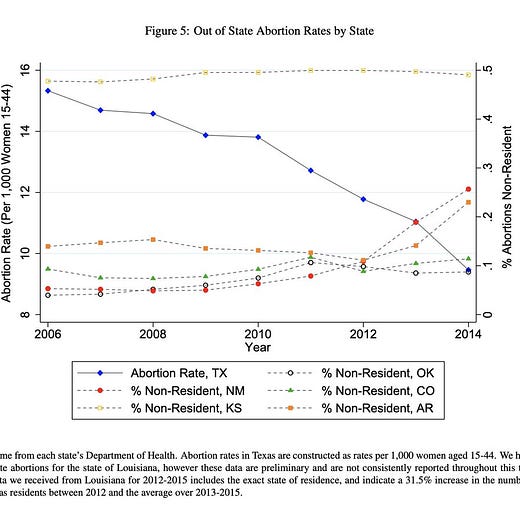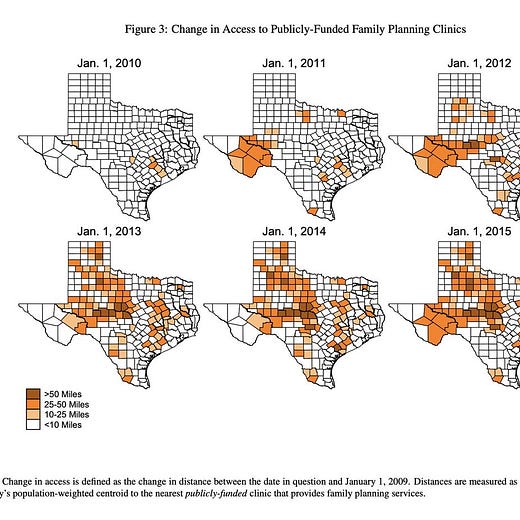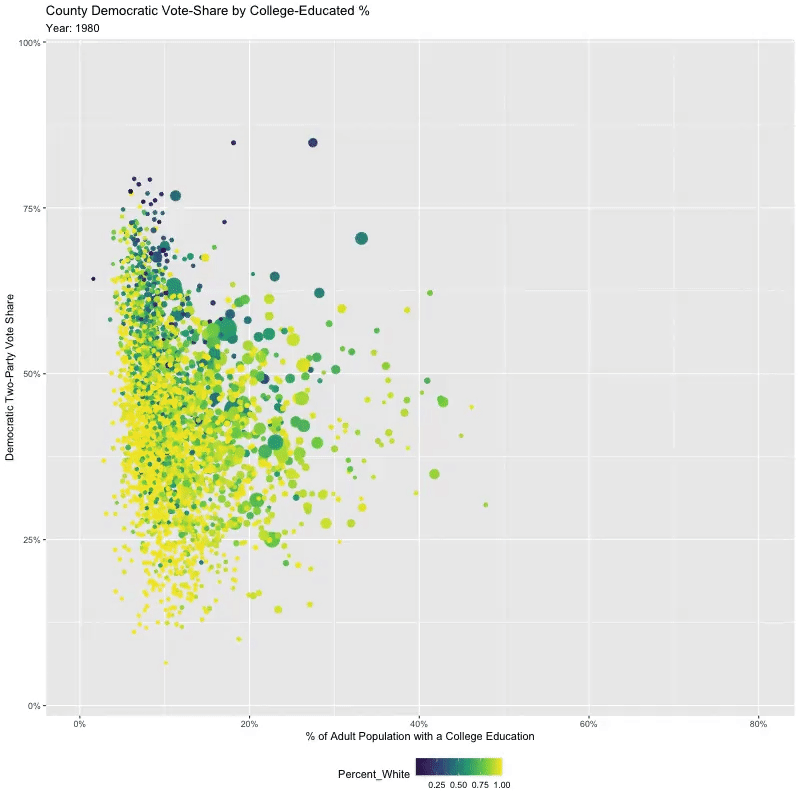Best of #econtwitter - Week of July 10, 2022 [2/3]
Jul 17, 2022
Welcome readers old and new to this week’s edition of Best of Econtwitter. Please submit suggestions — very much including your own work! — over email or on Twitter @just_economics.
This is part two of three.
Late edition here — this is for the prior week!
Paper summaries

Jessica Leight@leightjessica
This fig shows the key insight - more publications from a given author in a journal after a coauthor joins the board; from an impressive sample of 106 journals over 22 yrs

4:09 PM · Jul 5, 2022
1 Like
^bigger effects for women and early career researchers

Ryan Briggs@ryancbriggs
I have a new working paper out with a great team of co-authors. osf.io/hsgkp In it, we examine retrospective power in political science using meta-analyses. We find that power is *very* low. Below is a thread with a few key details and results.

2:07 PM · Jul 5, 2022
299 Reposts · 1.09K Likes

Ryan Briggs@ryancbriggs
We gathered data on 16k hypothesis tests from all 46 meta-analytic articles in political science where we could get data (details in paper). We can see if we have selection on stat. significance by graphing the z-scores from the tests. No surprises here, but still sad to see this

2:07 PM · Jul 5, 2022
3 Reposts · 39 Likes
^cf: The Bias for Statistical Significance in Sport and Exercise Medicine

Matt Grossmann@MattGrossmann
Across 21 countries, the left has lost most support among low education, high income voters. Left gained most among high education, high income votes, but only reached parity there. So left support is now concentrated among high education low income voters
journals.sagepub.com/doi/abs/10.117…

1:57 PM · Jul 5, 2022
400 Reposts · 1.36K Likes
^more miscellaneous polisci twitter this week: electoral accountability; bureaucracy oversight; politics of succession; cheating in online surveys

Cosmin Ilut@CosminIlut
Bridges psychology lit on reasoning as System 1 (automatic/associative) and System 2 (analytical), with the economics tools of mental info acquisition subject to costly cognition. Endogenous, policy-variant cognitive biases emerge. Predict high MPC of rich + Hand-to-Mouth agents.

QJE @QJEHarvard
Recently accepted by #QJE, “Economic Agents as Imperfect Problem Solvers,” by Ilut (@CosminIlut) and Valchev: https://t.co/OwIDmh683F
9:59 AM · Jul 6, 2022
11 Reposts · 85 Likes

Florian Ederer@florianederer
Are most people really loss-averse? Not really!
Around 50% of the US population is loss-tolerant and many people accept negative expected-value gambles.
Fascinating new paper by Chapman, @snowberg, Wang & @CFCamerer that completely changed my priors:
cesifo.org/en/publikation…

2:00 PM · Jul 6, 2022
25 Reposts · 137 Likes

Matthew Yglesias@mattyglesias
Jobs ranked by their non-monetary qualities
nber.org/system/files/w…

10:12 AM · Jul 9, 2022
46 Reposts · 370 Likes
^teachers are #1; social scientists are #12 😊

Andrew Little@anthlittle
New paper with @matt_brundage_ and @SooSunYou1: "Selection Neglect and Political Beliefs." It's a review paper which identifies a common theme with many applications: people form beliefs as if what they experience is representative of wider populations.
osf.io/p49at

7:45 PM · Jul 5, 2022
76 Reposts · 231 Likes

(((David Shor)))@davidshor
Really interesting paper studying the impact of Texas's roll-backs of access to family planning and abortion services, h/t @TNG512
nber.org/system/files/w…




12:29 AM · Dec 5, 2021
42 Reposts · 212 Likes
Interesting discussions

Matteo Iacoviello@IacoIacoviel
There are two popular ways to access economics research and its impact, RePEc and Google Scholar. A short thread 🧵…1/n #EconTwitter
8:04 PM · Jul 7, 2022
66 Reposts · 394 Likes

Alex Lee@AlexanderMkLee
Has regression discontinuity jumped the shark? A thread
3:25 AM · Jul 11, 2022
67 Reposts · 389 Likes

eric@ercjhnkrbs
🚨Data Viz: Forty years of education polarization in a GIF.🚨
Education polarization has drastically reshaped American politics over the last decade, but the trend goes back further. Let's look at education and race on the county level since 1980:
(1/6)

2:53 AM · Jul 2, 2022
13 Reposts · 34 Likes

Kasey Buckles@Kasey_Buckles
But framing their advice to wait in this way is what made me eventually decide to just go for it.
Having your letters say "she should've been promoted years ago" makes their decision easy. But if that's what they say, then you weren't promoted soon enough! Go get it now! (6/6)
7:09 PM · Jul 6, 2022
3 Reposts · 80 Likes

Anup Malani@anup_malani
Also, it is actually remarkable (for at least economists) to be in an equilibrium where people provide free labor for reviews w/o any commitment back. It can be sustained in eqm. But doesn’t seem stable, especially if lots of young scholars exit the sector. For them, why referee?
5:21 PM · Jul 8, 2022
2 Likes

